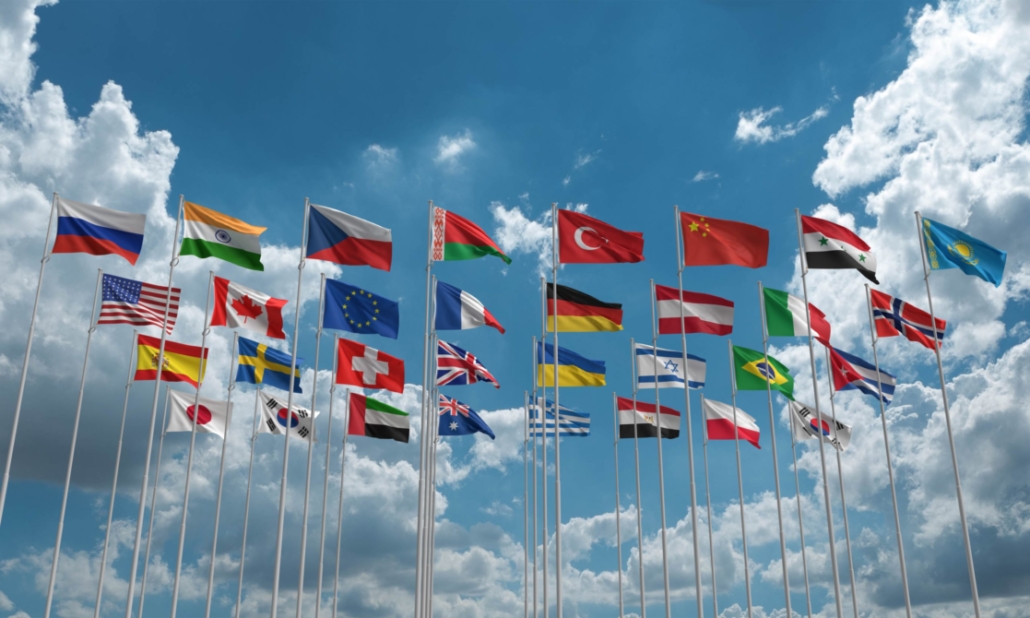#EconomicPolicy
#EconomicPolicy77
Contacts:
Katrin Kamin, Kiel Institute for the World Economy: katrin.kamin@ifw-kiel.de
Julian Hinz, Kiel Institute for the World Economy: Julian.Hinz@ifw-kiel.de
The value of coalitions
How coordination magnifies the economic impact of sanctions on Iran and Russia
New research shows how countries acting together when imposing sanctions can increase the effectiveness of the measures in terms of raising the economic costs for the target countries and increasing the potential for deterrence. The study by Sonali Chowdhry, Julian Hinz, Katrin Kamin and Joschka Wanner, which examines the role of coalitions in the context of sanctions against Iran in 2012 and Russia in 2014, also finds that the sectoral dimension of sanctions is important in determining their economic impact as well as the costs incurred by the targets.
The simulations used in the analysis explore the potential impact of third-party countries joining a coalition. The results indicate that China’s cooperation could have a powerful effect, increasing Iran’s losses from sanctions by nearly 75% and Russia’s by approximately 22%. Other large developing economies – such as Brazil, India, South Africa and Vietnam – could exert significant punitive force if they were to join the coalition.
The researchers also investigate the relative burden for sanctioning countries, finding considerable asymmetries in the distribution of losses across coalition members: costs tend to be disproportionately borne by small states close to the target economy. Transfers that would level domestic losses across all coalition members amount to $2.9 billion for the Iran sanctions and $4.9 billion for the Russia sanctions, with the United States being the leading sender of transfers.
The use of sanctions as a tool for achieving geopolitical objectives has been on the rise since the 1970s, with a significant increase in the last decade. These economic measures are often seen as an alternative to military intervention, and they rely on a country’s position in global trade networks to exert pressure.
The new study examines the role of coalitions in the economic costs and deterrent potential of sanctions, focusing on the sanctions against Iran in 2012 and against Russia in 2014. The researchers provide quantitative evidence on the impact of coalitions in enhancing the effectiveness of these measures.
Their analysis makes use of a quantitative general equilibrium trade model to simulate the effects of different hypothetical coalition set-ups. They find that the coalition against Iran enforced 38.9% of the welfare loss achievable through a horizontal expansion of sanctions (that is, inclusion of all countries) and 47% of the welfare loss under a vertical expansion (that is, a complete embargo). In the case of Russia, the coalition enforced 57.8% of the welfare loss achievable through a global sanctioning coalition and 16.3% of the welfare loss under a complete embargo.
One of the key findings is that multilateral enforcement amplifies the deterrent force of sanctions, with the welfare loss increasing by 20.2% for Iran and 12% for Russia compared with unilateral action. By coordinating efforts and reducing opportunities for sanctions-busting, coalitions can increase the efficacy of these measures.
In terms of domestic welfare loss for coalition members, the researchers find important differences between the two sanctions regimes, which point towards sectoral differences.
While multilateral action in the case of Russia lowers the domestic welfare losses for coalition members, the same does not hold for Iran, where a full-blown multilateral embargo on oil and gas increases the domestic welfare loss borne by sanctioning states. This difference highlights the importance of the sectoral dimension of sanctions measures and its role in determining the economic cost of sanctions.
The simulations also explore the potential impact of third-party countries joining the coalition. The researchers find that China’s cooperation could have a powerful effect, increasing Iran’s welfare loss by nearly 75% and Russia’s by approximately 22%. Other large developing economies – such as Brazil, India, South Africa and Vietnam – could also exert significant punitive force if they were to join the coalition.
Finally, the study investigates the relative burden for sanctioning countries, finding considerable asymmetries in how welfare losses are distributed across coalition members. Welfare costs tend to be disproportionately borne by small states in proximity to the sanctioned economy.
Given this inequity, the researchers compute the size of transfers that would level the domestic welfare losses incurred from sanctions across all coalition members. The scale of such an adjustment fund is $2.9 billion for the 2012 Iran sanctions and $4.9 billion for the 2014 Russia sanctions, with the United States being the leading transfer-sending member.
This analysis demonstrates the importance of coalitions in magnifying the economic costs and deterrent potential of sanctions. The sectoral dimension of sanctions plays a crucial role in determining their economic impact as well as the costs incurred for sanctioning countries. The participation of large developing economies like China can further enhance the punitive force of coalitions.
As sanctions continue to be a popular tool for geopolitical leverage, understanding the dynamics of coalition formation and the factors that influence their effectiveness is essential for policy-makers.
Brothers in arms: the value of coalitions in sanctions regimes
Authors:
Sonali Chowdhry (European University Institute)
Julian Hinz (Bielefeld University)
Katrin Kamin (Kiel Institute for the World Economy)
Joschka Wanner (University of Potsdam, Kiel Institute for the World Economy and Berlin School of Economics)








